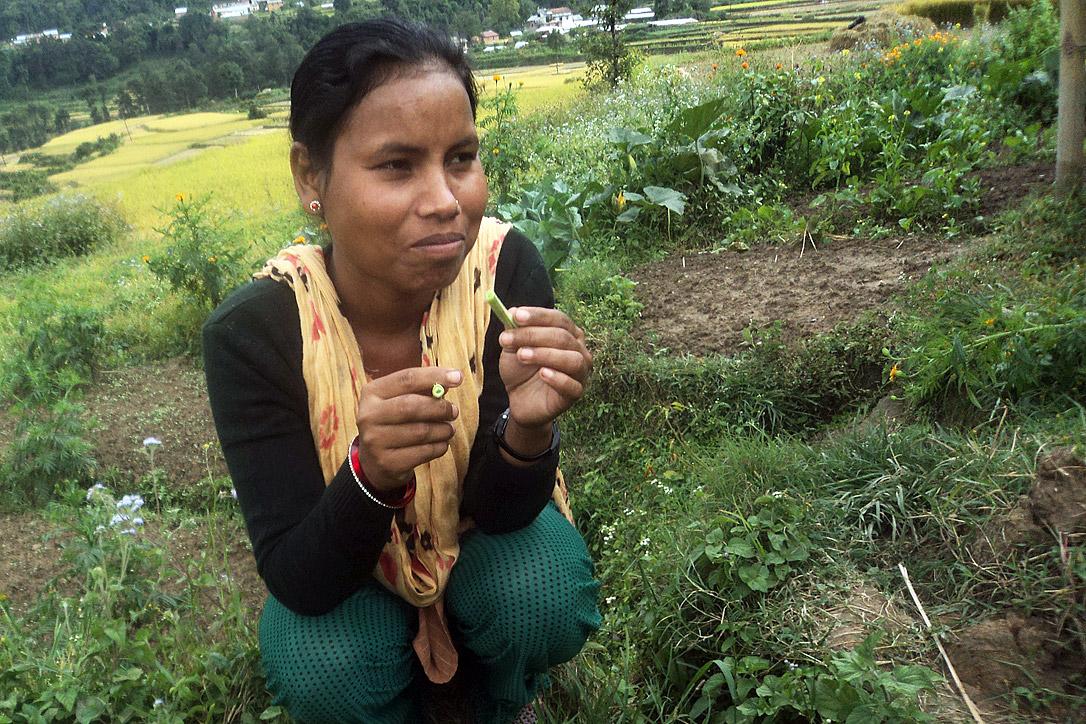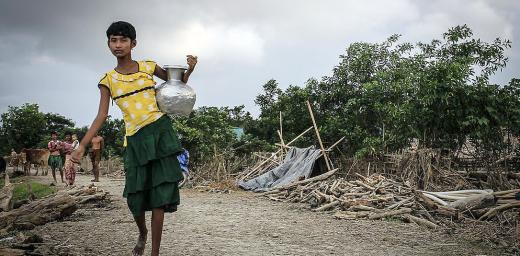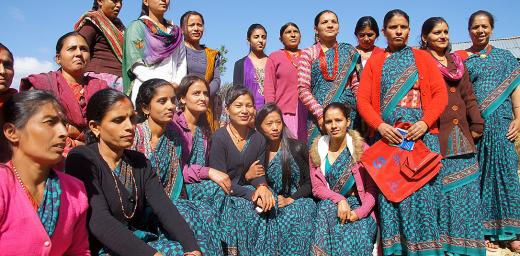Human rights: Myanmar and Nepal accept LWF recommendations

A Dalit woman in Nepal. Implementing the Discrimination and Untouchability Act of 2011, which abolishes caste discrimination, is a major human rights challenge in Nepal. Photo: LWF/Lucia de Vries
Giving communities a voice on the international stage
(LWI) – The governments of Myanmar and Nepal have accepted recommendations of The Lutheran World Federation (LWF) at their Universal Periodic Review (UPR), which took place at the beginning of November.
LWF had submitted a parallel report on the human rights situation in both countries, which was taken up by the United Nations Office of the High Commissioner for Human Rights (OHCHR), several UN member states, and consequently, the two countries themselves.
“The human rights issues the LWF advocated for were considered in the plenary and most of them were accepted by the governments of both countries,” LWF Advocacy Officer Dr Ojot Miru Ojulu said. “We succeeded in giving local communities a voice on the global stage.”
LWF cited 19 times
The UPR process is a unique mechanism of the UN Human Rights Council aimed at improving the human rights situation on the ground of each of the 193 UN member states. The mechanism is used to review the human rights situation of all UN member states every four-and a-half years.
In the process, non-governmental organizations are encouraged to submit their findings in firsthand reports, so-called parallel reports, which member can consider when presenting recommendations of the country under review.
LWF submitted parallel reports for both Myanmar and Nepal on the basis of its long presence in and engagement with local communities and civil society in both countries.. LWF country programs assembled the reports after consulting communities and civil society actors in the respective countries, speaking with community members, community-based organizations and local authorities.
Even before the review, LWF’s alternative UPR reports were selected by the OHCHR and posted on its website giving the reports wider publicity and accessibility by all stakeholders. The findings of the LWF also found their way into the official OHCHR report.
“In the brief 10-page official OHCHR summary of NGOs reports, LWF reports were cited 19 times,” Ojulu said. “The High Commissioner’s report picked up issues such as the right to housing, right to health, right to education and right to development, in the case of Nepal. For Myanmar, our findings on the right to water, children’s rights and women’s rights were quoted. This is strong affirmation of the credibility and quality of LWF reports.”
Myanmar’s commitment
During the review process, some of the government missions accredited to the UN that LWF national staff from Nepal and Myanmar had visited considered LWF’s recommendations in their statements.
“The Myanmar and Nepal governments accepted most of these recommendations, including the recommendation on a land registration system, protection from all forms of violence against women, and effective registration of all children in the country for Myanmar,” Ojulu explained.
“For Nepal they accepted our recommendation on effective implementation of the caste-based Discrimination and Untouchability Act of 2011, access to education for children with disabilities, and effective implementation of the People’s Housing Program” among others.
After the review, LWF also held discussions with a representative of the government of Myanmar on the way forward. He reassured LWF staff of his government’s commitment to improve the human rights situation in the country. “He reiterated his government’s openness to work together with civil society organizations such as the LWF in translating UPR recommendations into concrete actions on the ground to improve people’s lives,” Ojulu said.
Healthy relations
According to LWF staff, the Myanmar representative underscored the urgency of addressing women’s rights, the need to reintegrate former child soldiers into society, the rights of people with disabilities, the right to education and people’s rights to health as some of the top issues for his government.
“The way in which the LWF together with its partners have worked on the UPR of Myanmar and Nepal demonstrates how international instruments - when strategically coordinated from local to global - can deliver tangible results on the ground, and contribute to an improvement of human rights and good relations between state and civil society,” Ojulu said.





